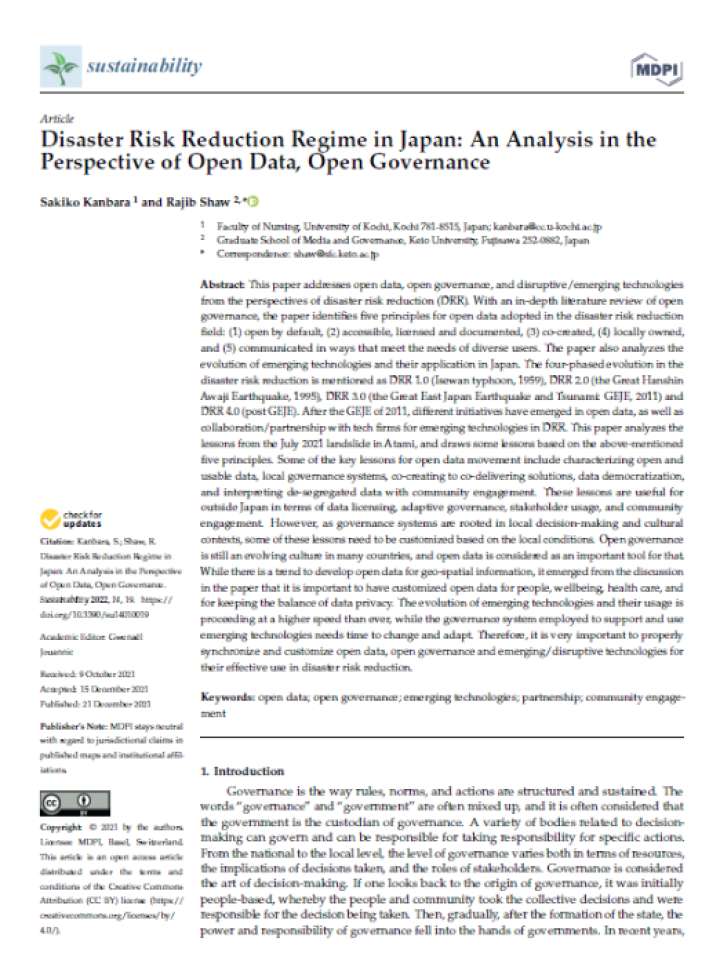Disaster risk reduction regime in Japan: An analysis in the perspective of open data, open governance
This paper addresses open data, open governance, and disruptive/emerging technologies from the perspectives of disaster risk reduction (DRR). With an in-depth literature review of open governance, the paper identifies five principles for open data adopted in the disaster risk reduction field: (1) open by default, (2) accessible, licensed and documented, (3) co-created, (4) locally owned, and (5) communicated in ways that meet the needs of diverse users. The paper also analyzes the evolution of emerging technologies and their application in Japan.
This paper finds that while there is a trend to develop open data for geo-spatial information, it is important to have customized open data for people, wellbeing, health care, and for keeping the balance of data privacy. The evolution of emerging technologies and their usage is proceeding at a higher speed than ever, while the governance system employed to support and use emerging technologies needs time to change and adapt. Therefore, it is very important to properly synchronize and customize open data, open governance and emerging/disruptive technologies for their effective use in disaster risk reduction.
Explore further
